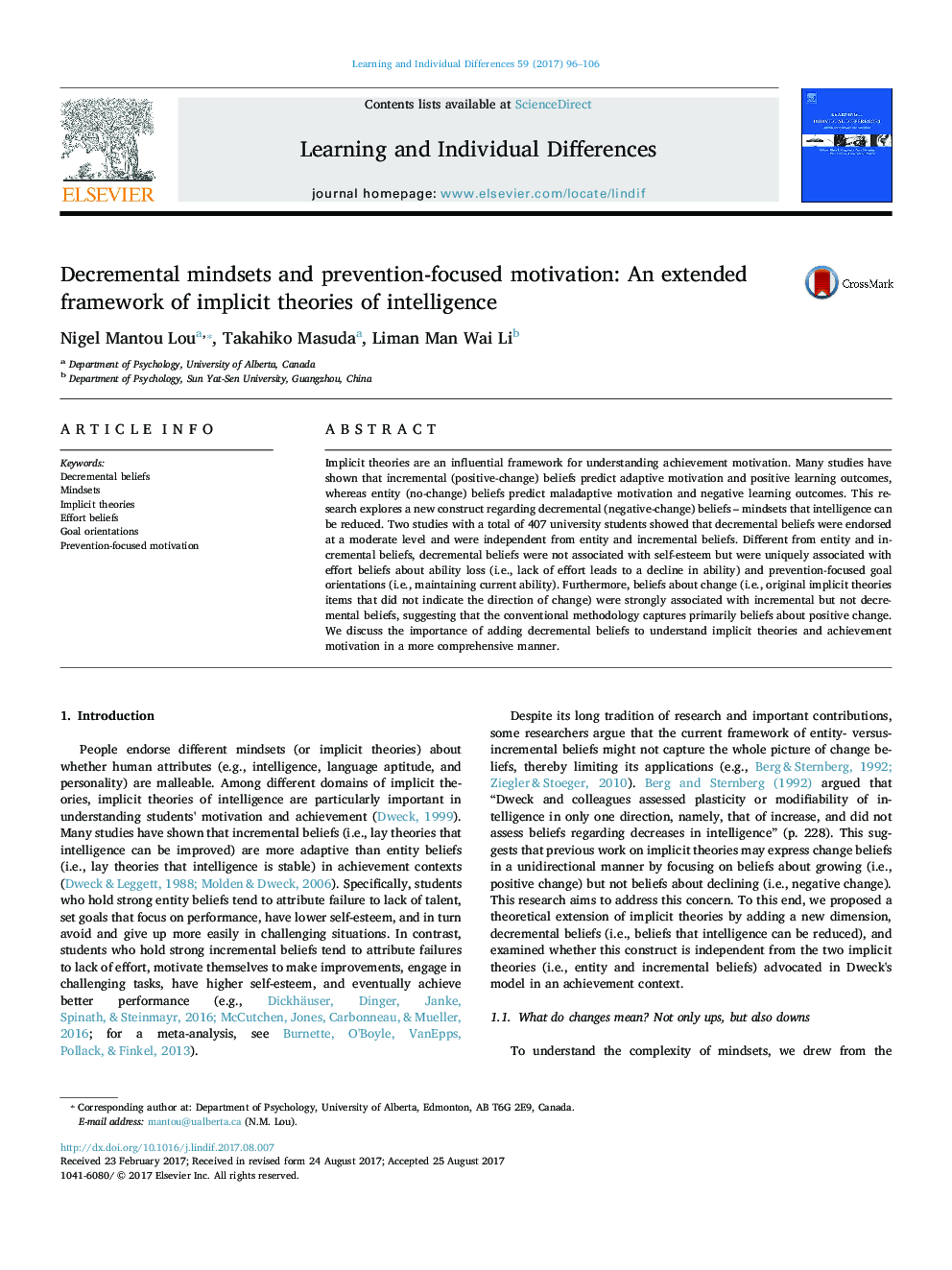| Article ID | Journal | Published Year | Pages | File Type |
|---|---|---|---|---|
| 4940027 | Learning and Individual Differences | 2017 | 11 Pages |
Abstract
Implicit theories are an influential framework for understanding achievement motivation. Many studies have shown that incremental (positive-change) beliefs predict adaptive motivation and positive learning outcomes, whereas entity (no-change) beliefs predict maladaptive motivation and negative learning outcomes. This research explores a new construct regarding decremental (negative-change) beliefs - mindsets that intelligence can be reduced. Two studies with a total of 407 university students showed that decremental beliefs were endorsed at a moderate level and were independent from entity and incremental beliefs. Different from entity and incremental beliefs, decremental beliefs were not associated with self-esteem but were uniquely associated with effort beliefs about ability loss (i.e., lack of effort leads to a decline in ability) and prevention-focused goal orientations (i.e., maintaining current ability). Furthermore, beliefs about change (i.e., original implicit theories items that did not indicate the direction of change) were strongly associated with incremental but not decremental beliefs, suggesting that the conventional methodology captures primarily beliefs about positive change. We discuss the importance of adding decremental beliefs to understand implicit theories and achievement motivation in a more comprehensive manner.
Related Topics
Social Sciences and Humanities
Psychology
Developmental and Educational Psychology
Authors
Nigel Mantou Lou, Takahiko Masuda, Liman Man Wai Li,
